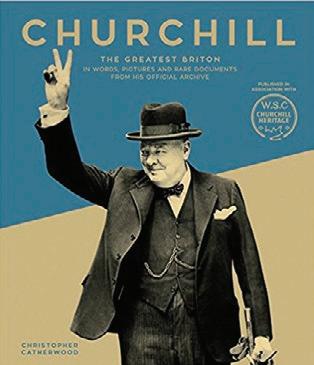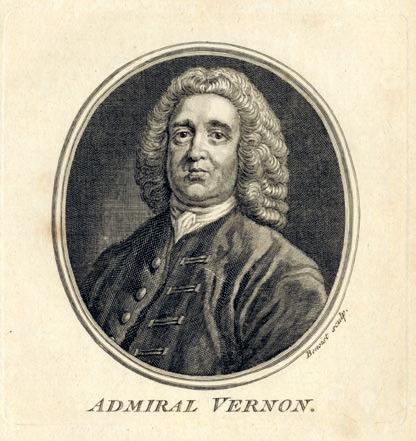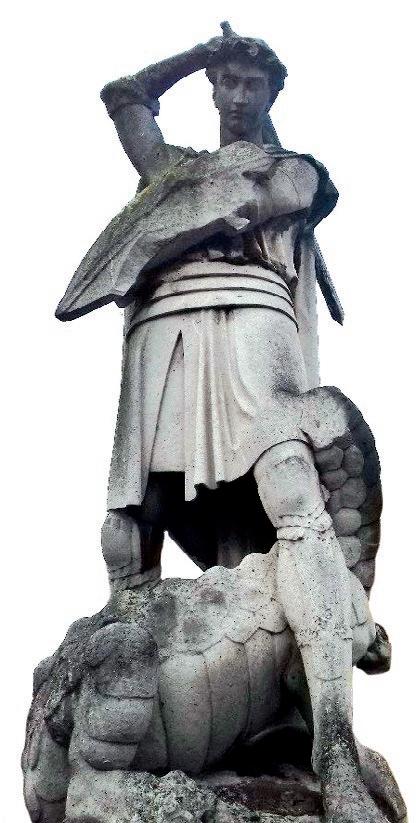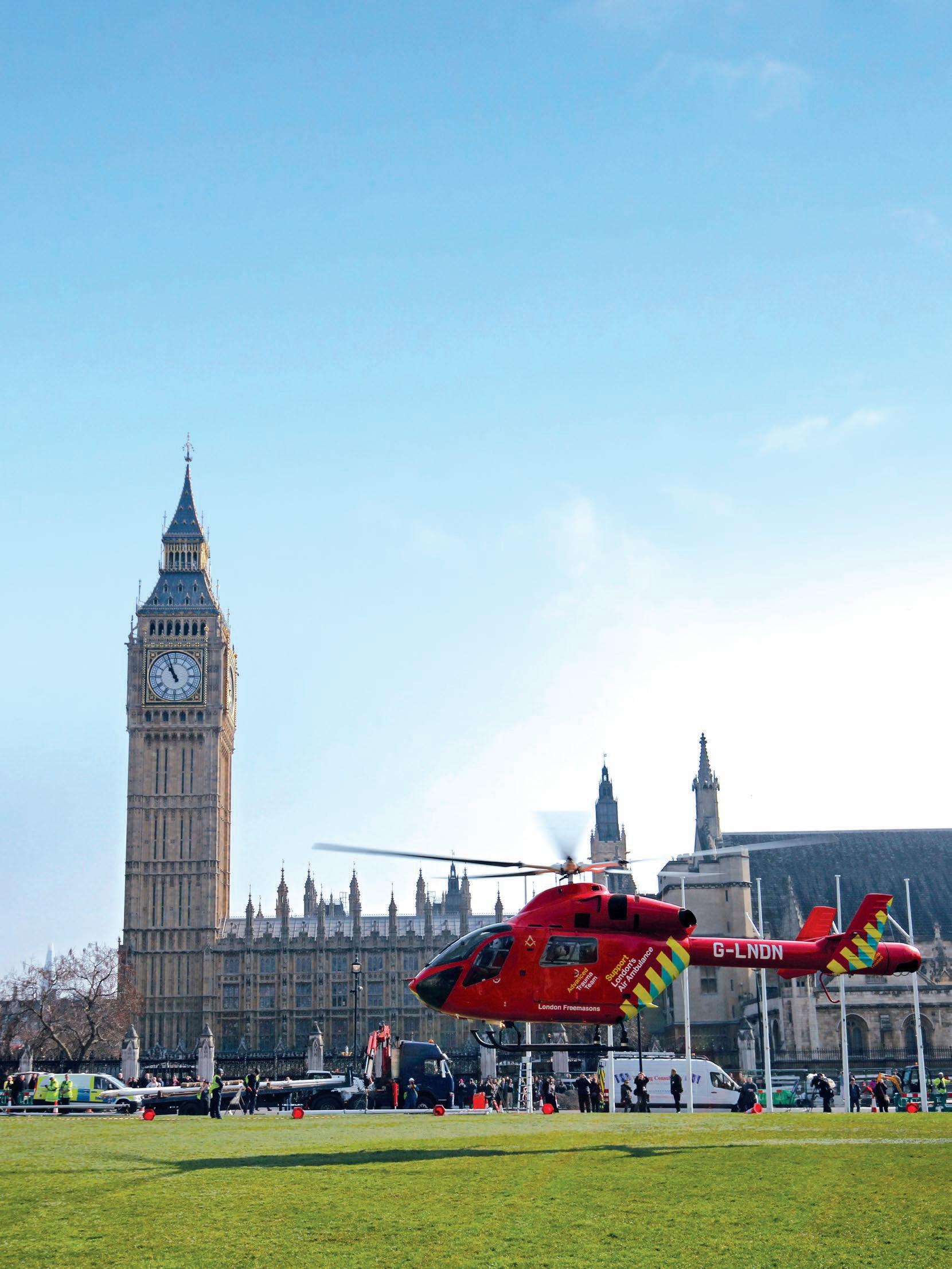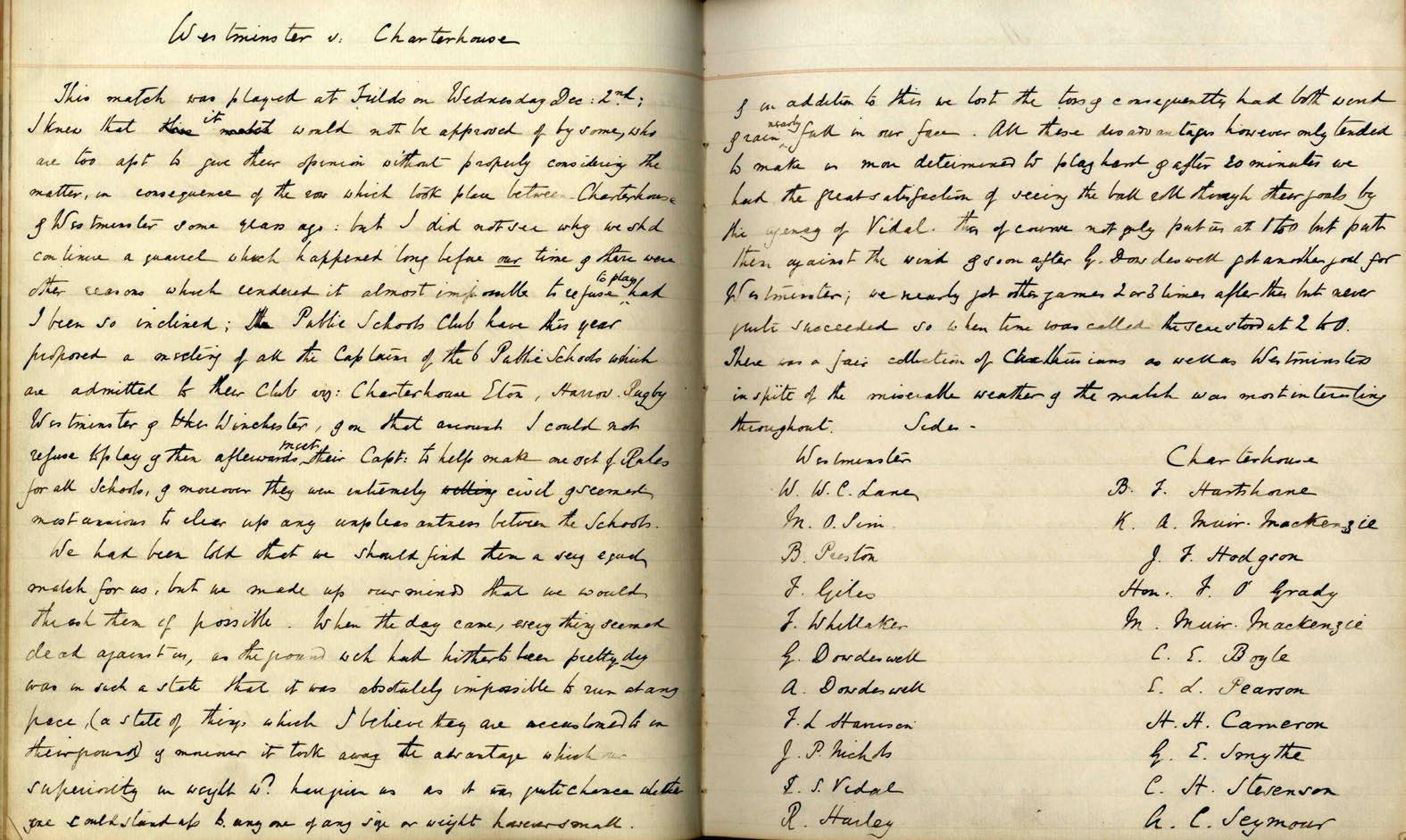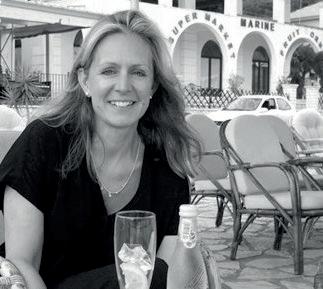
30 minute read
In Memoriam
The Development Office have been made aware of the deaths of the following members of The Elizabethan Club and greater Westminster School Community, since the publication of the last Elizabethan Newsletter.
2013
Advertisement
Andrew James Morris Gifford (LL, 1976-80)
2016
Mr Anthony Bostock (GG, 1945-48) Dr John Crosse (AHH, 1949-54) Mr Tudor Davies (GG, 1948-52) Mr Luke Herrmann (BB, 1945-50) Mr Barrie Peroni (RR, 1947-52) Mr Roger Robinson (KS, 1945-50) Mr Desmond Roy Morris (AA, 1940-45) Dr Michael Sweet-Escott (KS, 1936-41)
2017
Mr Rodney Barker (BB, 1947-52) Mr John Bernard Bury (GG, 1930-35) Mr Derrick Kleeman (RR, 1932-37) Sir Richard Paniguian (GG, 1963-67) Dr Gordon Anthony Wells Sharrard (KS, 1941-46) Mr William Wrigley (QS, 1960-65)
2018
Mr Charles Jeremy Broadhurst (AHH, 1956-61) Canon Wilfrid Browning (AHH, 1931-37) The Rt Hon The Lord Roger Nicholas Edwards Crickhowell (BB, 1947-52) Mr Peter Martin Hall (QS, 1960-64) Ms Amanda Jorgensen (Teaching Staff (Art), 1994-12) Mr Robin Sawers (AHH, 1948-53) Mr Clive St. George Clement Stanbrook OBE QC (RR, 1962-66)
ANDREW JAMES MORRIS GIFFORD (LL, 1976-80)
3rd January 1963 – 19th February 2013 After leaving Westminster School Andrew went up to Trinity College, Oxford, where he took a degree in Literae Humaniores. He won the Douglas Sladen Essay Prize in 1984 and was called to the Bar in 1988 by Lincoln’s Inn.
TUDOR DAVIES (GG, 1948-52)
10th June 1934 – 18th April 2016 Tudor Davies joined his older brother Richard by arriving at Westminster in 1947 by which time the School had returned to London after the Second World War. He soon showed his prowess at various sports including athletics, golf, gymnastics and soccer where he represented the school as a goalkeeper. He and Barrie Peroni persuaded the Head Master to allow boys under the age 16 to play lawn tennis, but the Head Master insisted that each applicant had to pass a tennis test to confirm his capability and commitment. Westminster never looked back, and in 1956 the School won the Youll Cup played at the All England Club.
Golf was the game where Tudor truly excelled. He played for Wales between 1954 & 1960 and was the Welsh Champion in 1955. He was a very active member of the OWGS for over sixty years and played in the Halford Hewitt between 1953 and 1999. Typical of all top players, Tudor was always happy to partner anyone without a complaint no matter where you put him. No truer sign of a real gentleman. He will be missed.
ANTHONY BOSTOCK (GG, 1945-48)
18th July 1931 – August 2016 Anthony was born on the 18th July 1931 in Blackheath London.
His early childhood was spent in Cairo, a place he loved dearly, and on returning to England his parents sent him to Cheltenham Junior College. He went on to Westminster School in his early teens. Upon leaving Westminster, where he enjoyed rowing, he declined a place at Oxford and instead joined Coward Chance (now Clifford Chance).
Anthony later took up a career within the legal department of the BBC where he ultimately spent most of his career as Head of Legal for both TV and Radio. He also ran their legal departments across England, Scotland, Ireland and Wales (no mean achievement considering the massive complexities and legal differences between the jurisdictions).
After leaving the BBC he embarked upon a legal writing career. Up until he had a serious head injury in 1994, he was compiling a book comparing media law across all the European Countries, a task he sadly never completed.
Anthony was a talented linguist (he spoke eight languages) who loved camping, good food and model railways. Up until the very end he never totally lost his dry sense of humour, compassion and concern for others.
DR MICHAEL SWEET-ESCOTT (KS, 1936-41)
29th September 1922 – 4th August 2016 Michael Sweet-Escott, who has died aged 93, came to Westminster as a King's Scholar in 1936. Two others in his Election remained lifelong friends: Norman (N.J.P) Brown who became Professor of Philosophy at Queens University, Kingston, Canada and Donald Swan (the musical half of Flanders and Swan – ‘At the Drop of a Hat’ etc). He took part in the wartime movements of the School, first to Lancing, then Exeter University and finally to Whitbourne, Herefordshire. In his final year he became joint editor of the Elizabethan with Norman Brown. In 1941 he gained a Westminster Scholarship to Christ Church, Oxford where he got a first class degree in Classical Honour Mods (a shortened war-time course of three terms). In 1942 he joined the RAF and trained as a pilot and then as a navigation specialist in Canada where he was an instructor for 18 months. Finally he did his operational training on mosquitoes. When he completed this, the war had ended, and having a place at university, he eventually got early demobilisation and was able to start studying in 1946 as an Oxford University medical student, as he had determined to become a doctor, specifically a GP.
After qualifying in 1951 he joined a large group practice in Skipton, North Yorkshire, and had a happy and fulfilled life, combining some hospital work and teaching with an extensive practice in the Yorkshire Dales. Retiring from full time work in 1985, he worked part-time in the Cotswolds till he was 70. He and his wife then made a final retirement to Gargrave in the Yorkshire Dales.
DESMOND ROY MORRIS (AHH, 1940-45)
22nd May 1927 – 15th August 2016 Desmond Morris was the middle of three sons of the Bishop of St Edmondsbury and Ipswich. He became the Head Boy of ‘Home Boarders’ (now Wren’s) when Westminster School was evacuated to Buckenhill, Bromyard and Herefordshire during the Second World War. At school he particularly enjoyed athletics as his major sport.
On leaving school he studied modern languages at St John’s College Cambridge where he also enjoyed rowing; after university, Desmond spent the main part of his National Service in Germany.
Following demobilisation he trained as a teacher, spending the bulk of his working life at The Royal Hospital School, Holbrook, near Ipswich, where he became Deputy Headmaster.
He died aged 89 after a short illness and is survived by his younger brother, his wife Monica, four children and ten grandchildren.
LUKE HERRMANN (BB, 1945-50)
9th March 1932 – 9th September 2016 Luke Herrmann, who has died aged 84, was an expert on the art of JMW Turner and the author of several books about his work including Turner Prints (1990), which led to a revival of interest in the artist’s engravings. After Westminster and National Service Herrmann went up to New College, Oxford, where he read History. On leaving Herrmann became an assistant editor in charge of articles about art for the Illustrated London News.
In 1956 a chance encounter with Sir Karl Parker, Keeper of the Ashmolean, led to Herrmann moving back to Oxford to work for the museum. He remained at the Ashmolean until 1967 when he took a lectureship at the University of Leicester and, with his colleague Hamish Miles, established the university’s much admired art history department, of which he eventually became the Chair.
He married Georgina Thompson, an archaeologist and Emeritus Reader at University College London, in 1965. She survives him with their two sons.
ROGER ROBINSON (KS, 1945-50)
9th April 1932 – 19th September 2016 Roger was born at Hoylake on The Wirral, home of The Royal Liverpool Golf Club. He was a second-generation King’s Scholar, graduate of Trinity College, Oxford, and a golfing blue. Roger’s working life until 1980 was spent in the Liverpool shipping business.
Roger was a true all-rounder, his sporting CV including soccer, cricket, tennis, squash and hockey at top club level. His golfing career was one of particular distinction: at his zenith he had a scratch handicap and, as a member of the Royal & Ancient, he served on many of the Club’s committees including the Championship and Rules of Golf Committees. Such wide experience more than qualified him for his final occupation, that of Secretary at Eaton Golf Club for nearly a decade up to 1992, when the Club stood on the Duke of Westminster’s estate at Eaton Hall outside Chester.
In 1982 Roger was honoured with the Captaincy of Royal Liverpool and few if any OWGS members can have put more back into the game from which we have all derived such pleasure. Roger stands as a very distinguished member indeed, one of whom we should all be truly proud. Submitted by I Petherick
DR JOHN CROSSE (AHH, 1949-54)
4th January 1936 – 5th November 2016 John Ormandy Crosse, who died in 2016 aged 80, led an interesting life as an army doctor. He was born on 4th January 1936 in Shanghai where his father, also an army doctor, was then stationed. Following the Japanese attack on Shanghai, the family were taken to safety in Hong Kong by the Royal Navy, and later returned to England by troop ship. He spent most of the war years living with his mother in a remote part of North Wales while his father served abroad. He did not attend the local Welsh school and spent much time playing outdoors. In one incident, he and some friends were swept out to sea in a rowing boat, but were fortunately spotted by an RAF plane and rescued. His formal schooling only started when the family moved to London near the end of the war. He attended Eaton House preparatory school and then Westminster, where he was up Ashburnham under Francis Rawes and then Denny Brock. He was a good sportsman, playing in the Football 1st XI, and he also represented the School in tennis and athletics. He was also committed to the CCF, where he rose to the rank of Sergeant. In 1955 he went up to Queens’ College, Cambridge, to read Medicine, completing his clinical training at St Thomas’s Hospital. After his house jobs, he followed in his father’s footsteps and joined the Royal Army Medical Corps as a doctor. He was a medical officer to a battalion in the Radfan campaign during the war in Aden. He later served in Singapore, Colchester, Cambridge and Germany (where one of his patients was the imprisoned Rudolf Hess), and also had short postings to the Falklands (just after the war) and Belize. He was promoted to Colonel in 1987 and retired from his final post as Senior Medical Officer at Shorncliffe Army Camp in 1996. John was an enthusiast who enjoyed many activities. In addition to sport, these included outdoor pursuits – particularly sailing and canoeing. In retirement he enjoyed looking after his garden and was also coordinator of the local neighbourhood watch, which suited his military organisational skills. He was followed to Westminster by his two younger brothers, Mark and Stephen, and later by his nephews David and Alexander
(Mark’s children), who were all up Ashburnham. He died on 5th November 2016 after a short illness. He is survived by his wife, his three daughters and his four grandchildren.
BARRIE PERONI (RR, 1947-52)
17th September 1933 – 11th November 2016 Barrie Peroni arrived at Westminster in September 1947. He played football for two years in the 1st XI and was Captain of Tennis in 1952.
After leaving school it was not long before he started doing an enormous amount for the Old Westminsters. He was Hon. Secretary of the OWFC from 1957 to 1965 and then Hon. Secretary of the OWGS from 1965 to 1992, and its President from 1996-1999. Under his stewardship both these sections had a successful period and many OWW were very grateful to him for all his dedicated hard work. He was a fine golfer and represented the Westminsters in the Halford Hewitt regularly between 1967 and 1985. He also represented the Old Westminsters in the Arthur Dunn Cup (Football) and the D’Abernon Cup (Tennis).
Having qualified as a solicitor he joined his family firm, Norman A. Peroni, which he eventually controlled. He successfully guided the company from the dwindling market distributing photographic paper into the packaging and imaging industry.
He was a tireless worker for local charities, in particular the Thames Valley Adventure Playground, which he set up in 1982 for both children and adults with special needs.
JOHN BERNARD BURY (GG, 1930-35)
10th July 1917 – 18th January 2017 John was educated from 1930-1935 at Westminster, where he was Head of Grant’s, and from 1935-1938 at Balliol where he read Modern History.
During the War he was commissioned in the Royal Signals. After demobilisation he joined Shell, working in Brazil, Britain, Switzerland and the Netherlands. In 1972/3 Shell sponsored him as a Fellow Commoner at Churchill College Cambridge where he worked on understanding the emerging environmentalist movement and its implications for the oil industry.
Once retired, he focused on his art-historical interests. He wrote an introduction and extensive notes to the edition of Francisco de Holanda’s book on portraiture, Do Tirar Polo Natural, published in Madrid in 2008. He assembled a considerable private library and donated his collection of important antiquarian books on architecture to the library of King’s College, Cambridge, in memory of his grandfather J.B. Bury, who had been a fellow of the College.
He was particularly proud that, in a collection of the best humorous letters to The Times published in 1987, he (under the pseudonym J.R. Burg), was the only correspondent to feature twice. John is survived by his wife Anne whom he met in Brussels in 1944 and to whom he was married for 72 years; his children Michael and Peter; his grandchildren Catherine, Clare, Francesca (CC, 1999-00) and Eleanor; and his great-grandchildren Joe, Nicky, Betsy and Jacob.
SIR RICHARD PANIGUIAN (GG, 1963-67)
28th July 1949 – 25th June 2017 Sir Richard Paniguian, who has died aged 67, became Head of Defence Sales for UK Trade & Investment after a wide-ranging and intrepid career as an executive of the oil giant BP.
After Westminster, Richard read Arabic at Durham University before obtaining an MBA at INSEAD. He began as a graduate trainee with BP’s trading division in Oman and Dubai, going on to become Vice-President of International Oil Trading in New York, Head of Capital Markets in London, Tresident of BP Turkey, and then Chief Executive of BP's Tanker Shipping Company.
On his retirement from BP in 2008, Paniguian became head of the Defence and Security Organisation within UKTI, working alongside defence manufacturers in their export sales efforts, leading a successful drive to boost Britain’s growing reputation as a global centre of excellence in
cybersecurity and accompanying defence ministers on trips abroad.
Paniguian’s work in defence and security earned him a knighthood two years ago. He was awarded a CBE in 2007 for services to UK business. He was a keen cricketer who started a short-lived club, the Bounders, and was for many years a member of MCC.
DR GORDON ANTHONY WELLS SHARRARD (KS, 1941-46)
9th August 1928 – 27th October 2017 Gordon Sharrard, who has died aged 89, started at Westminster as a King’s Scholar in 1941. Gordon followed his elder brother, William John Sharrard, who was a King’s Scholar seven years earlier. He joined the school when it was evacuated to Whitbourne in Herefordshire (he often recounted cycling to lessons five miles away in Bromyard), with his final year back in London. At this time, Gordon developed his love of music, playing piano and cello in concerts, as well as acting in Shakespearian plays.
In 1946 he was awarded a Triplett Exhibition to Christ Church College Oxford to study medicine. He spent his clinical years at University College Hospital London where he met his wife Margaret who was a midwife and qualified in 1954. During house jobs in Lincoln he somehow found time to set up the Lincoln Opera Society!
He started training to be an ENT surgeon, with posts in Guildford, Nottingham and the Royal National Throat, Nose and Ear Hospital in London. In 1965 he took a Senior Registrar post in ENT at Cumberland Royal Infirmary, Carlisle. In 1967 he moved to Manchester University to take up a Senior Research Associate post in Audiology. The research involved the use of an early computer to look at the EEG evoked responses of deaf children, which contributed to the development of cochlear implants. This work led to a doctorate and in 1973 Gordon was awarded Doctor of Medicine (DM) from the University of Oxford.
He then became a GP in the Manchester area, first in Clayton, then Longsight before spending five years in Hattersley. Throughout this busy period, he was also an emergency doctor in the Manchester area and was Medical Officer in Audiology in Tameside, until he retired in 1983.
Gordon had a wide range of interests including history and archaeology. However, his lifelong passion was music and he was Artistic Director of his own opera company in Manchester, producing twenty-seven operas. He continued to sing in choirs and play his cello in three orchestras in the Manchester area into his late eighties.
Gordon remained in contact with the School throughout his life, attending events of College Society and also meetings of the school friends who were evacuated to Herefordshire.
He leaves his wife Margaret and his children and grandchildren. Submitted by his daughter, Dr Helen Sharrard
MR CHARLES JEREMY BROADHURST (AHH, 1956-61)
20th April 1943 – 25th February 2018 Dearest and beloved husband of Marisa, much-loved father of Emma and James, father-in-law of Rebecca and grandfather of Olivia, Imogen and Raffie.
MS AMANDA JØRGENSEN (Teaching Staff (Art), 1994-2012)
13th May 1968 – 6th March 2018
My beautiful Mum was diagnosed with a complex, high-grade glioblastoma multiforme in January of this year. She was admitted to hospital having suffered from headaches, visual disturbances and a loss of appetite over a period of several months. The tumour also caused her to experience
confusion and short-term memory loss which were very distressing for us all. After an operation intended to remove only a small part of the tumour for analysis, the surgeon informed us that there was absolutely no possibility of further treatment due to the malignancy and location of the tumour. Just a month later, on the 6th March 2018, she died at the Willen hospice in Milton Keynes, where we were able to spend those last precious days with her. As a teacher of Art and a true creative, my Mum inspired and supported not only my brother and I, but so many young people during her 49 years of life. She was a graceful woman and a beacon of positivity despite all that she suffered, remaining dignified and maintaining her endearing sense of humour even in those last weeks of her life. Deeply saddened by our loss, my Dad, brother and I are hopeful that one day a cure can be found for this horribly cruel disease. Submitted by her daughter, Amy
THE RT HON THE LORD ROGER NICHOLAS EDWARDS CRICKHOWELL (BB, 1947-52)
25th February 1934 – 17th March 2018 Lord Crickhowell, who has died aged 84, was, as Nicholas Edwards, the Welsh secretary for eight years in Margaret Thatcher’s first two administrations. Representing the principality to the Cabinet’s Thatcherites was not easy. He was known as ‘Big Stick Nick’ to many across the Severn Estuary, but he fought dogged internal battles with the unwilling Treasury to secure funding for Welsh projects, including most notably the Cardiff Bay barrage. The scheme, initially opposed by conservationists and many Welsh politicians, including the city council, some prominent Labour politicians, local residents, Treasury ministers and Thatcher herself has, despite the initial cost which soared far beyond the original estimates of £50m to more than £200m, helped regenerate the southern part of the Welsh capital. Edwards supported it, foreseeing a venue for an opera house, but the area now incorporates not only the Wales Millennium Centre for the performing arts but also the Senedd, the Welsh assembly building. Though mocked at the time, Edwards rightly described the bay project as one of the greatest pieces of urban regeneration in the country.
Edwards, a tall, saturnine figure, spent almost all his 17 years in Parliament as the Conservatives’ spokesman on Welsh affairs. He was of Welsh stock but he was born, son of Marjorie Ingham Brooke and Ralph Edwards, in London, where his father was the head of the woodwork and furniture department at the Victoria and Albert Museum, and later an adviser on works of art to the Historic Buildings Council of England and Wales. Years later, arguing privately with Thatcher against cuts in arts funding, he would claim: “I was virtually brought up in the V&A and have known the art world all my life.”
The family had a home in the Black Mountains of south Wales as well as one in Chiswick, west London. Edwards was educated at Westminster School, before going to Trinity College, Cambridge, to study history after national service in the Royal Welch Fusiliers. After university, he went into insurance in the City and in due course became a Lloyd’s broker.
He was elected Tory MP for Pembrokeshire at Edward Heath’s triumphant general election in 1970. It was a constituency that had supported Labour for 20 years, and was at that stage represented by the eccentric Desmond Donnelly. Edwards would hold the seat throughout his Commons career.
Once Thatcher became the party leader in 1975, Edwards’s business background and support for the new leader made him the opposition’s shadow secretary of state and he duly became Welsh secretary when the party returned to power in 1979. Wales was by no means a Tory-free zone: 11 Conservatives were elected to its 36 seats in that year (eight were elected in the 2017 general election in the principality’s now 40 constituencies) but Edwards’s Thatcherite economic stance ensured that he was her envoy to the Welsh.
The Welsh secretary’s dry economic credentials may have been apparent at Westminster, but in Wales he was
pragmatic. Regional aid was cut, but there was special pleading for aid to the steel works at Shotton and, when Wales’s sole Plaid Cymru MP Gwynfor Evans threatened to starve himself to death to secure a separate Welsh language television service, Edwards conceded that too.
He was a keen supporter of the Cardiff Bay barrage project, despite pointed threats from the Treasury that he should keep quiet and warnings from Thatcher’s private secretary that it would be just another public sector folly. As he wrote to the prime minister: “I can hardly fail to express support for a proposal I personally have carried forward publicly … the proposal is fundamental to the successful development of south Cardiff.”
Edwards was equally vehement that the Government should not be seen as philistine by cutting arts funding to the National Museum of Wales and Welsh National Opera while ladling it out to the new British Library and the opera in London. He told Thatcher in a private note released 30 years later: “Huge expenditure and the presence of international stars are not necessary to achieve high standards and cultural excellence – lessons that Covent Garden has apparently still to learn.”
He insisted that the Tories should not write off the arts world as entirely consisting of their political opponents. Though he recognised that he might be a lone voice crying in the wilderness, it was appalling politics and a social misjudgement: “The arts are important for themselves, not only a hostile political interest.” In 1995 he would lead the campaign for the WNO to have a permanent home in Cardiff, in opposition to the then Tory government.
As secretary of state, he travelled widely, seeking private sector investment in Wales and by 1987 his health was under strain. He decided to step down at that year’s general election. He was appointed to a life peerage and played an active part after that in the House of Lords.
In 1989 Crickhowell was made the first chairman of the newly established National Rivers Authority, even though he admitted he knew nothing of environmental science. Far from being a Thatcherite laissez-faire leader, he championed the improvement of water quality and the shaming – and, if necessary, prosecution – of industrial polluters.
Crickhowell was himself a freshwater angler and lived in a converted watermill in the Black Mountains. “Any organisation that thinks it may happily go on polluting our rivers and seas, or thinks that it is likely to get away with it scot-free would be making a very great mistake,” he told the Guardian in 1989. The first to be prosecuted was Shell. The NRA would be, he said, the strongest environmental protection agency in Europe and he led it until it was absorbed into the Environment Agency in 1996.
His ill-health did not prevent him taking up a string of business and cultural appointments. He returned to underwriting and other directorships at HTV, Anglesey Mining and Associated British Ports. And he served terms as president of the University of Wales, Cardiff, director of the Welsh National Opera, chairman of the Cardiff Bay Opera Trust, president of the Contemporary Arts Society for Wales and the South East Wales Arts Association.
He married Ankaret Healing in 1963. They had a son, Rupert, and two daughters, Sophie and Olivia. Obituary taken from The Guardian
PETER MARTIN HALL (QS, 1960-64)
18th December 1946 – 12th April 2018 Martin was born in Cairo, on 18th December 1946, to John Hall, an officer in the British Army who had served in Egypt during the war, and Ida Salem, the daughter of Ovadia Salem, an immensely wealthy Jewish businessman who had fled persecution in his home town of Salonika in 1920. Shortly after Martin was born, John Hall, with financial assistance from his father-in-law, tried farming in the white highlands of Kenya, but with the onset of the Mau-Mau rebellion moved with his family to Britain, where he taught chemistry, at first at Westminster. He suffered further financial difficulties when the Salems’ assets were
confiscated by the Nasser government. After a spell in prison Ovadia died, a ruined man, in 1958, and throughout his life Martin was haunted by the sense of the precariousness and perhaps also the pointlessness of worldly success.
Martin’s mother, to whom he was always very close, came from a French-speaking and cosmopolitan background, while his father was from a devout non-conformist family in Bedford, members of the church known as the Bunyan Meeting. They were a very ill-matched couple and they separated while Martin and his younger brother Michael were schoolboys. This event matured him very quickly, and taught him early that authority was not always to be relied on, and that life’s crises had to be faced from one’s own resources. In facing such crises he showed a rare fortitude.
None of these problems, however, impeded his career at school, where he stood out by his brilliance and exceptionality. He arrived with a good command of French, unusual in those days, the result partly of his mother’s influence, and partly of his previous education at the Lycée Français in South Kensington. He also excelled as an actor, taking the part of the servant girl Toinette in the school’s production of Molière’s Le Malade Imaginaire to great acclaim, and as a footballer, until he was banned from one of the school teams for not having the right attitude where training was concerned – an early example of his subversive attitude to authority. Intellectually he was outstanding, and even as quite a young boy had a remarkably sophisticated appreciation of French literature, and of literature in other languages, especially English and German. He went up to Christ Church to read French and German on a Westminster closed scholarship when still only 17, which is an indication of his ability as a scholar. In later life he used to say that he had gone to university too soon and had not taken advantage of his time there but, if that was true, the fault was not entirely his own, for in the 1960s Oxford was not a very exciting place, intellectually or socially.
Martin, however, read widely, in contemporary literature as well as in his set books, and made many friends, some of them for life. He cultivated a mildly Bohemian persona, by turning day into night, and gained a certain notoriety by missing seminars and classes scheduled for 5 p.m. because he had overslept. Lack of funds made foreign travel difficult, but he did go with me on a memorable trip to Dublin in Easter 1966, not to participate in the celebrations of the fiftieth anniversary of the Rising of 1916, then in full swing, but to visit locations associated with Samuel Becket’s first novel, Murphy. That was an indication of his commitment to the imaginative world of a great writer.
Oxford was followed by an MA in French Drama at Bristol University where he met Liz Tracy who in 1970 became his wife. A year later the young couple, and their first child, moved to Northern Ireland where Martin had secured a post in the French Department of the University of Ulster. Their time in Ireland was brief, though exciting, because it coincided with the height of the Troubles, and in 1973 they returned to London after Martin’s appointment to a lectureship in French at King’s College.
There he remained for the rest of his academic career. He was not a conventional modern academic, always busy with administration and endlessly publishing. He was, though, an excellent teacher, with a genuine interest in his students as individuals. He was particularly effective with those with who had exhausted the patience of everyone else, for he had a remarkable understanding of other people’s needs and feelings. He was also a deeply learned man with an extraordinary breadth of knowledge which went far beyond his area of specialisation, the literature of the French eighteenth century. All his colleagues benefited from his erudition and from his willingness to discuss and comment perceptively on their research projects, something which he would invariably do with wit and charm.
Martin’s PhD thesis, ‘The “Roman historique et galante, 1680-1750”’, was completed in 1992, but he did not turn it into a book and he published very little. Yet his silence may have resulted from a principled belief that the world does not need the multiplication in print of one-sided opinions about literary texts.
This would seem to be the meaning of his very interesting introduction to the Penguin translation of Diderot’s novel, Jacques le Fataliste, published in 1986. There, after pointing out the reductive nature of the numerous judgements made about the book, he concludes: “Jacques calls to the intelligent reader – not the doctrinaire one – and invites us all to write our own conclusion”. Martin was never the man to impose his conclusions on anyone else.
Martin had many interests outside his academic work. He had a wide knowledge of classical music, and was once said to have been the most musical man never to have learnt to play an instrument. He accumulated great learning in a number of other areas: wine, botany (with especial attention to mycology), gardening, more in its theoretical than in its practical aspect, and bird-watching.
In all of these activities he was joined by Liz. To have married her was certainly the wisest decision he ever took. She pardoned his excesses and provided a barrier between him and the outside world. At home Martin, the perfect host, did much of the cooking and entertained his guests with wit and sympathy, but with Liz always there to provide a link to reality.
He was my oldest and my dearest friend, and his passage through the world has made it a sweeter place.
Liz survives him, as do his two children, Kate and Dan. Submitted by Mr Tom Earle
CLIVE ST GEORGE CLEMENT STANBROOK O.B.E. Q.C. (RR, 1962-66)
10th April 1948 – 13th April 2018 Clive St George Clement Stanbrook was an international lawyer, a businessman, a farmer, a government adviser, and a tireless sponsor and prosecutor of African agricultural and economic development. He had interests in Brussels, London, the Turks and Caicos Islands, and a working, teaching farm in Malawi dedicated to the sustainable improvement of the health, education and welfare of the villages and communities that it encompassed.
Educated at The Dragon School, Oxford and Westminster School, London, he read law at University College and qualified as a barrister in 1973 when he was called to the Bar of England & Wales by the Inner Temple. He was subsequently admitted to the Turks and Caicos Islands bar in 1983 and to the New York bar in 1989. Initially, for almost a decade, he focused on criminal law, notably being sent as a very young lawyer to Pentonville Prison to assist the infamous gangster, Reggie Kray.
After Britain joined the European Economic Community (now the European Union) Clive became an experienced international trade and competition lawyer. Together with his partner Philip Bentley Q.C., Clive pioneered a full-time EU trade law and competition law practice in Brussels. His first big case was to defend the Canadian wood pulp producers successfully in the Wood Pulp case which started in 1981 before the European Commission and went all the way to judgement by the Court of Justice in 1988. He also conducted anti-dumping and state aid cases, and advised on WTO and International trade issues in many parts of the world. In Brussels he developed considerable experience in providing EU law advice for a number of industries, including retailing, pulp and paper, textiles, engineering, chemicals, cement and the services sectors. In particular, he was heavily involved in counselling these industries in the run up to the creation of the Single Market in 1992.
He is acknowledged as a leading expert in various legal directories, including Chambers & Partners’ “The World’s Leading Lawyers for Business”, for his work in EU anti-trust, international trade, litigation and arbitration. In 2005 he moved his practice to the Brussels office of the international law firm of McDermott Will & Emery, becoming a partner in this firm and doing business under the name of McDermott Will & Emery/ Stanbrook LLP. He was followed by Philip Bentley and his other professional colleagues in Brussels.
He is co-author of Dumping and Subsidies, third edition (Kluwer, 1996); co-author of Extradition – The Law and Practice, second edition (Oxford University Press, 2000); and co-editor of International Trade Law and Practice (Euromoney, 1990). He also wrote and lectured on a variety of European Union and international trade topics. As the youngest ever President of the British Chamber of Commerce for Belgium and Luxembourg, he was awarded the OBE for services to British Industry in the EU in 1987 and was appointed Queen's Counsel in 1989.
In 2006 he and his family bought Toleza farm, in Balaka, Malawi, determined to restore the fortunes of the farm and return some prosperity and activity to the surrounding area. The farm was revived as well as the communities it included and employed, with youth employment programmes, education and health and other social programmes. Clive divided his later years working indefatigably on a diverse range of projects in Malawi, the Turks and Caicos Islands and Brussels.
Clive was married to Julia Hillary in 1971. They have four children (Fleur, Sophie, Ivor and Isabella) and six grandchildren (Grace, Julia-Rose, Anna, Elina, Elio, and Theodore). Clive’s son Ivor has taken over all responsibilities for his father’s interests in the Turks and Caicos.
Clive was born in Harrow, London in 1948, and grew up in Northern Nigeria, where his father Ivor was a District Officer in the ten years before Nigerian independence in 1960. By his own admission, Clive always worked hard and long, although his devotion to his family and friends was legendary. A convinced optimist and believer in the strength of willpower, he fought cancer successfully for years, but died at the very time that he seemed to have overcome the disease.
Clive will be remembered by the thousands of people whose lives he touched throughout his life for his massive personality, unbounding enthusiasms, robust motivation, love of life and his infectious sense of humour. He was an inspiration to all those he worked with. There were many who wanted more of his time, but the sheer volume of his many commitments and interests, which seemed even to increase as he got older, made this a familiar but redundant complaint to those lucky few within his beloved family who always and rightly had first call upon his precious time. Submitted by Lionel Stanbrook

The Development Office Westminster School 17a Dean's Yard London SW1P 3PB +44 (0)20 7963 1113 developmentoffice@westminster.org.uk

